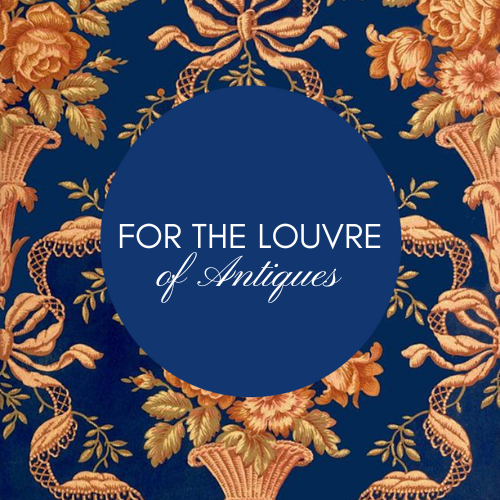Retrato en miniatura del siglo XIX de Ulrike von Levetzow (1804-1899)
Retrato en miniatura del siglo XIX de Ulrike von Levetzow (1804-1899)
No se pudo cargar la disponibilidad de retiro
Compartir




Un retrato del siglo XIX pintado a mano en acuarela y gouache sobre marfil de Ulrike von Levetzow (1804-1899) en un marco Griffin de bronce estilo Imperio.
Dimensiones: 4,5" de alto x 3,25" de ancho x 0,25" de profundidad
Historia:
Ulrike von Levetzow era una mujer alemana de una familia aristocrática prusiana, más conocida por su relación con el famoso escritor Johann Wolfgang von Goethe. Nació en Leipzig y pasó parte de su infancia en Estrasburgo. A principios de la década de 1820, acompañó a su madre a Marienbad, donde conoció a Goethe, mucho mayor que ella. Goethe, que tenía 74 años en ese momento (Ulrike tenía 19), se enamoró de ella y le propuso matrimonio gracias a la intervención del Gran Duque. La familia de Ulrike rechazó la propuesta de manera delicada, aunque ella mantuvo correspondencia con Goethe durante muchos años después. Nunca se casó y vivió una larga vida, falleciendo en 1899 en su finca de Bohemia.
Johann Wolfgang von Goethe (1749-1832) es considerado una de las figuras más importantes de la literatura occidental y desempeñó un papel central en el movimiento literario alemán conocido como Clasicismo de Weimar. Autor de Fausto. El encuentro de Goethe con Ulrike inspiró su famosa obra Elegía de Marienbader (1823).
Un retrato del siglo XIX pintado a mano en acuarela y gouache sobre marfil de Ulrike von Levetzow (1804-1899) en un marco Griffin de bronce estilo Imperio.
Dimensiones: 4,5" de alto x 3,25" de ancho x 0,25" de profundidad
Historia:
Ulrike von Levetzow era una mujer alemana de una familia aristocrática prusiana, más conocida por su relación con el famoso escritor Johann Wolfgang von Goethe. Nació en Leipzig y pasó parte de su infancia en Estrasburgo. A principios de la década de 1820, acompañó a su madre a Marienbad, donde conoció a Goethe, mucho mayor que ella. Goethe, que tenía 74 años en ese momento (Ulrike tenía 19), se enamoró de ella y le propuso matrimonio gracias a la intervención del Gran Duque. La familia de Ulrike rechazó la propuesta de manera delicada, aunque ella mantuvo correspondencia con Goethe durante muchos años después. Nunca se casó y vivió una larga vida, falleciendo en 1899 en su finca de Bohemia.
Johann Wolfgang von Goethe (1749-1832) es considerado una de las figuras más importantes de la literatura occidental y desempeñó un papel central en el movimiento literario alemán conocido como Clasicismo de Weimar. Autor de Fausto. El encuentro de Goethe con Ulrike inspiró su famosa obra Elegía de Marienbader (1823).
4.5"h x 3.25"w x 0.25"d
4.5"h x 3.25"w x 0.25"d
Ulrike von Levetzow was a German woman from an aristocratic Prussian family, best known for her relationship with the famous writer Johann Wolfgang von Goethe. She was born in Leipzig and spent part of her childhood in Strasbourg. In the early 1820s, she accompanied her mother to Marienbad, where she met the much older Goethe. Goethe, who was 74 at the time (Ulrike was 19), fell in love with her and proposed marriage through the intervention of the Grand Duke. Ulrike's family declined the proposal in a sensitive manner, though she maintained a correspondence with Goethe for many years afterward. She never married and lived a long life, passing away in 1899 at her estate in Bohemia.
Johann Wolfgang von Goethe (1749–1832) is considered one of the most important figures in Western literature, playing a central role in the German literary movement known as Weimar Classicism. Author of Faust. Goethe's encounter with Ulrike inspired his famous work Marienbader Elegie (1823).
Ulrike von Levetzow was a German woman from an aristocratic Prussian family, best known for her relationship with the famous writer Johann Wolfgang von Goethe. She was born in Leipzig and spent part of her childhood in Strasbourg. In the early 1820s, she accompanied her mother to Marienbad, where she met the much older Goethe. Goethe, who was 74 at the time (Ulrike was 19), fell in love with her and proposed marriage through the intervention of the Grand Duke. Ulrike's family declined the proposal in a sensitive manner, though she maintained a correspondence with Goethe for many years afterward. She never married and lived a long life, passing away in 1899 at her estate in Bohemia.
Johann Wolfgang von Goethe (1749–1832) is considered one of the most important figures in Western literature, playing a central role in the German literary movement known as Weimar Classicism. Author of Faust. Goethe's encounter with Ulrike inspired his famous work Marienbader Elegie (1823).
19th Century
19th Century
Bronze, ivory, watercolor, gouache, silk
Bronze, ivory, watercolor, gouache, silk
Prague
Prague
N/A
N/A





